The Cardiac Valve Replacement Cost in Israel approximately starts from ILS 133000 (USD 35000)
Atrial and mitral are the two main valves in the human heart. These valves have a special function to control or regulate the blood flow in the heart.
Atrial valve replacement and mitral valve replacement are required because of a defect in the functioning of these valves. When the valves do not open or close properly, it affects the flow of blood through the heart.
The defect may arise because of many reasons. But the two main reasons are as follows:
The decision to conduct valve replacement depends on the clinical status of the patients as per diagnostic reports and clinical symptoms. Sometimes, the patient is a candidate for aortic valve repair or mitral valve repair and does not require replacement of the valve. Therefore, the decision is made after the physical assessment and evaluation of the patient.
The following factors affect AVR cost and MVR cost:
Treatment cost
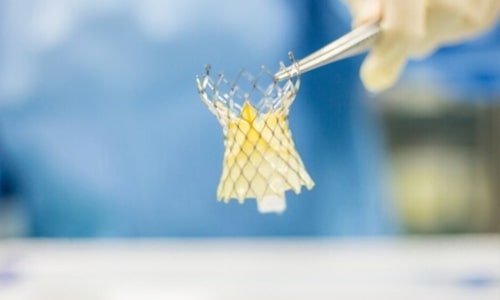
Some of the key inclusions which we provide as additional benefits of the package are:
With us, you are sure to receive all the benefits at competitive prices which is a better choice than paying actual hospital costs. AVR/MVR Valve Replacement Surgery is a heart valve repair procedure, which is performed to correct heart valves that are not functioning properly. Aortic Valve Replacement is an open heart technique, which involves leakage or narrowing of the aortic valve. Mitral Valve Repair is again an open heart procedure used to treat regurgitation (leakage) or stenosis (narrowing) of the mitral valve. Therefore, to explain AVR/MVR in simple terms, it is a heart condition developed when normal flow of blood through the arteries and vessels through your heart is interrupted., For AVR/MVR Valve Replacement Surgery in Turkey, we are providing the best all-inclusive discounted package at Medicana Camlica Hospital with some additional benefits.
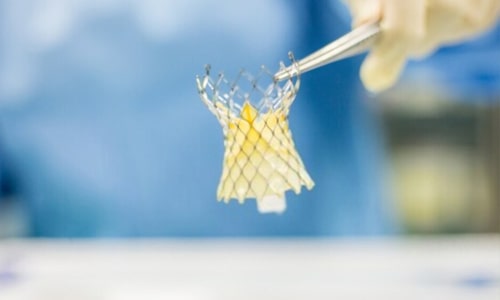
Some of the key inclusions which we provide as additional benefits of the package are:
We offer packages at reasonable pricing that include a variety of additional advantages, making it a better deal than paying for individual perks at the hospital. AVR/MVR Valve Replacement Surgery is a heart valve repair procedure, which is performed to correct heart valves that are not functioning properly. Aortic Valve Replacement is an open heart technique, which involves leakage or narrowing of the aortic valve. Mitral Valve Repair is again an open heart procedure used to treat regurgitation (leakage) or stenosis (narrowing) of the mitral valve. Therefore, to explain AVR/MVR in simple terms, it is a heart condition developed when normal flow of blood through the arteries and vessels through your heart is interrupted., For AVR/MVR Valve Replacement Surgery in India, we are providing the best all-inclusive discounted package at Pushpawati Singhania Research Institute with some additional benefits.
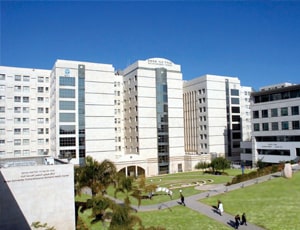
Rabin Medical Center located in Petah Tikva, Israel is accredited by JCI. Also listed below are some of the most prominent infrastructural details:
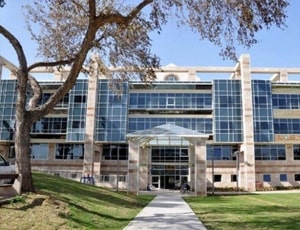
Kaplan Medical Centre located in Rehovot, Israel is accredited by JCI. Also listed below are some of the most prominent infrastructural details:
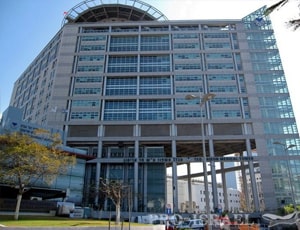
Tel Aviv Sourasky Medical Center -Ichilov Hospital located in Tel-Aviv, Israel is accredited by JCI. Also listed below are some of the most prominent infrastructural details:


Apart from in-detail treatment procedures available, Herzliya Medical Center located in Herzliya, Israel has a wide variety of facilities available for International Patients. Some of the facilities which are provided by them are Accommodation, Airport Transfer, Interpreter, SIM, TV inside room. Also listed below are some of the most prominent infrastructural details:
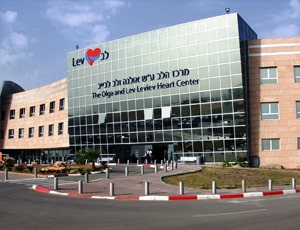
Sheba Medical Center located in Tel-Hashomer, Israel is accredited by JCI. Also listed below are some of the most prominent infrastructural details:
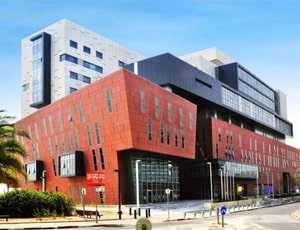
Assuta Hospital located in Tel-Aviv, Israel is accredited by JCI. Also listed below are some of the most prominent infrastructural details:
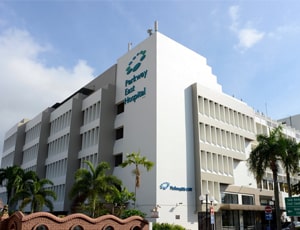
Parkway East Hospital located in Joo Chiat Pl, Singapore is accredited by JCI. Also listed below are some of the most prominent infrastructural details:
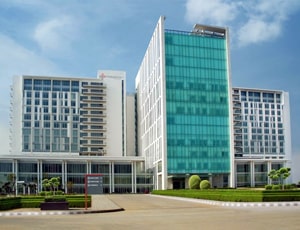
Types of Cardiac Valve Replacement in Medanta - The Medicity and its associated cost
| Treatment Option | Approximate Cost Range (USD) | Approximate Cost Range (INR) |
|---|---|---|
| Cardiac Valve Replacement (Overall) | 7272 - 15772 | 588509 - 1293551 |
| Aortic Valve Replacement | 7630 - 12647 | 606982 - 1005178 |
| Mitral Valve Replacement | 7752 - 13392 | 637027 - 1113934 |
| Pulmonary Valve Replacement | 7428 - 11968 | 604940 - 953699 |
| Ross Procedure | 10760 - 17113 | 863205 - 1379497 |
| Transcatheter Valve | 9164 - 14746 | 732579 - 1207422 |
| Double Valve Replacement | 11844 - 18448 | 981759 - 1526596 |
| Tricuspid Valve Replacement | 9697 - 16068 | 770340 - 1318215 |
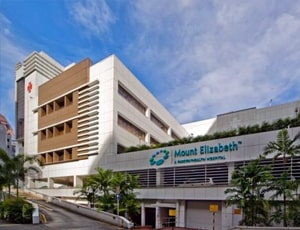
Mount Elizabeth Hospital located in Singapore, Singapore is accredited by JCI. Also listed below are some of the most prominent infrastructural details:
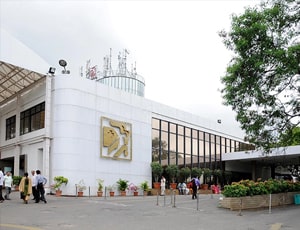
Types of Cardiac Valve Replacement in Apollo Hospitals and its associated cost
| Treatment Option | Approximate Cost Range (USD) | Approximate Cost Range (INR) |
|---|---|---|
| Cardiac Valve Replacement (Overall) | 7405 - 16007 | 587639 - 1290898 |
| Aortic Valve Replacement | 7552 - 12480 | 629259 - 1013359 |
| Mitral Valve Replacement | 7794 - 13277 | 636764 - 1087818 |
| Pulmonary Valve Replacement | 7215 - 11925 | 611307 - 956744 |
| Ross Procedure | 10721 - 16523 | 888521 - 1409914 |
| Transcatheter Valve | 8815 - 14542 | 739428 - 1222184 |
| Double Valve Replacement | 11702 - 18967 | 977758 - 1531444 |
| Tricuspid Valve Replacement | 9661 - 15857 | 767283 - 1300611 |
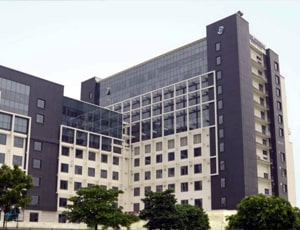
Types of Cardiac Valve Replacement in Venkateshwar Hospital and its associated cost
| Treatment Option | Approximate Cost Range (USD) | Approximate Cost Range (INR) |
|---|---|---|
| Cardiac Valve Replacement (Overall) | 6580 - 14175 | 543394 - 1169555 |
| Aortic Valve Replacement | 6790 - 11191 | 557504 - 911466 |
| Mitral Valve Replacement | 7134 - 12122 | 582179 - 996924 |
| Pulmonary Valve Replacement | 6603 - 10635 | 541204 - 875031 |
| Ross Procedure | 9596 - 15264 | 788983 - 1246663 |
| Transcatheter Valve | 8155 - 13259 | 663950 - 1080288 |
| Double Valve Replacement | 10660 - 16711 | 874988 - 1367148 |
| Tricuspid Valve Replacement | 8618 - 14248 | 707462 - 1163552 |
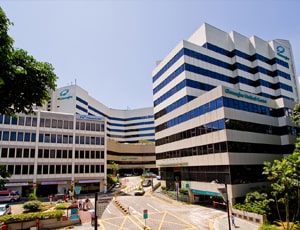
Gleneagles Hospital located in Napier Road, Singapore is accredited by JCI. Also listed below are some of the most prominent infrastructural details:
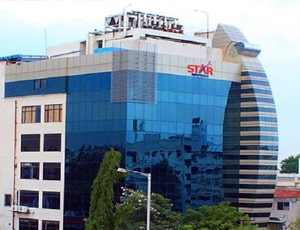
Types of Cardiac Valve Replacement in Star Hospitals and its associated cost
| Treatment Option | Approximate Cost Range (USD) | Approximate Cost Range (INR) |
|---|---|---|
| Cardiac Valve Replacement (Overall) | 5987 - 13065 | 495762 - 1080886 |
| Aortic Valve Replacement | 6230 - 10156 | 518516 - 841159 |
| Mitral Valve Replacement | 6639 - 11182 | 528142 - 920550 |
| Pulmonary Valve Replacement | 6091 - 9889 | 502851 - 814010 |
| Ross Procedure | 8921 - 14168 | 737703 - 1160245 |
| Transcatheter Valve | 7524 - 12151 | 613774 - 1010819 |
| Double Valve Replacement | 9746 - 15621 | 813597 - 1258546 |
| Tricuspid Valve Replacement | 8008 - 12971 | 644012 - 1074067 |
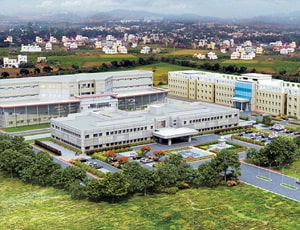
Types of Cardiac Valve Replacement in Global Health City and its associated cost
| Treatment Option | Approximate Cost Range (USD) | Approximate Cost Range (INR) |
|---|---|---|
| Cardiac Valve Replacement (Overall) | 7193 - 15871 | 597518 - 1300368 |
| Aortic Valve Replacement | 7460 - 12621 | 619350 - 998252 |
| Mitral Valve Replacement | 7715 - 13515 | 642363 - 1083686 |
| Pulmonary Valve Replacement | 7305 - 11798 | 589498 - 981325 |
| Ross Procedure | 10635 - 17163 | 892868 - 1392920 |
| Transcatheter Valve | 8993 - 14644 | 753485 - 1225594 |
| Double Valve Replacement | 11901 - 18860 | 964506 - 1519842 |
| Tricuspid Valve Replacement | 9492 - 15964 | 780663 - 1276153 |
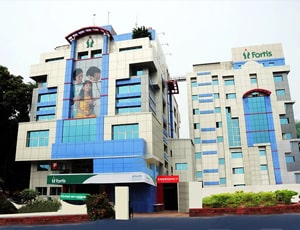
Types of Cardiac Valve Replacement in Fortis Malar Hospital and its associated cost
| Treatment Option | Approximate Cost Range (USD) | Approximate Cost Range (INR) |
|---|---|---|
| Cardiac Valve Replacement (Overall) | 6618 - 14267 | 538590 - 1162474 |
| Aortic Valve Replacement | 6783 - 11137 | 556509 - 912094 |
| Mitral Valve Replacement | 7099 - 12160 | 584673 - 1003673 |
| Pulmonary Valve Replacement | 6615 - 10668 | 540932 - 876723 |
| Ross Procedure | 9672 - 15253 | 792871 - 1246726 |
| Transcatheter Valve | 8091 - 13167 | 663097 - 1077343 |
| Double Valve Replacement | 10655 - 16757 | 875630 - 1366633 |
| Tricuspid Valve Replacement | 8615 - 14189 | 708481 - 1169760 |
Cardiac Valve replacement is performed to replace or repair a valve in the heart that stops working properly due to Valvular Heart Disease, also called Heart Valve Disease.
Heart valve replacement surgery involves a significant procedure that is performed through an open-heart approach, accessing the chest via the breastbone. This major operation, lasting two hours or more, requires a substantial recovery period, often extending over several weeks. While advancements have introduced less invasive alternatives for specific cases of valvular heart disease, these procedures are currently limited to select hospitals.
The main types of cardiac valve impairment include:
Valve replacement includes four procedures:
The aortic valve and the mitral valve replacements are the most common. Pulmonary and tricuspid valve replacements are uncommon in adults.
Valve replacement or repair can be done in several ways, depending on the problem. The most common valve replacements are:
Surgical procedure- In Aortic valve replacement the incision is made by cutting through the sternum. After the pericardium is opened, the patient is put on a cardiopulmonary bypass machine, which is also known as the heart-lung machine. This machine performs the task of breathing for the patient and pumping their blood around while the surgeon replaces the heart valve.
The surgeon makes a cut in the aorta when the patient is on bypass and applies a crossclamp. The patient's diseased aortic valve is removed and is replaced by a mechanical or tissue valve. After the placement of the artificial valve and closing the aorta, the heart-lung machine is taken off from the patient. A transesophageal echocardiogram helps to confirm whether the new valve is functioning properly.
Surgical procedure- General anesthesia is given to the patient before mitral valve replacement. An incision is made horizontally under the left breast, or vertically through the sternum. After exposing the heart, a cannula is placed and blood is directed to the heart-lung machine for cardiopulmonary bypass. The mitral valve is exposed by creating an incision in the left atrium. Then the valve is replaced. The left atrium is closed and the cardiopulmonary bypass is removed. The patient is taken to an intensive care unit after the surgery.
Post cardiac valve replacement, patients typically undergo a recovery period that involves monitoring for signs of infection, managing pain, and gradually resume normal activities. Short-term restrictions on strenuous activities may be advised, and a cardiac rehabilitation program could be recommended to enhance overall recovery.
Regular follow-up appointments with healthcare professionals help track progress and address any concerns, ensuring a smooth transition back to daily life while promoting optimal heart health.
Ask your healthcare adviser for the best multiple options and choose the one that meets your expectations
The cost of Cardiac Valve Replacement in Israel starts from USD$ 35000. Cardiac Valve Replacement in Israel is available across many hospitals in different states.
Different hospitals have different pricing policy when it comes to the cost of Cardiac Valve Replacement in Israel. Some of the best hospitals for Cardiac Valve Replacement offer a comprehensive package that covers the end-to-end expenses related to investigations and treatment of the patient. The comprehensive Cardiac Valve Replacement package cost includes the cost of investigations, surgery, medicines and consumables. A prolonged hospital stay due to delayed recovery, new diagnosis and complications after surgery may increase the cost of Cardiac Valve Replacement in Israel.
Cardiac Valve Replacement in Israel is offered by multiple hospitals across the country. For quick reference, the following are some of the leading hospitals for Cardiac Valve Replacement in Israel:
Upon discharge from the hospital after Cardiac Valve Replacement in Israel, the patients are advised to stay for about 21 days for recovery. This period is important to conduct all the follow-up tests to ensure that the surgery was successful and the patient can go back to the home country.
While Israel is considered to be one of the best destinations for Cardiac Valve Replacement owing to the standard of Hospitals, and expertise of doctors; there are a select few destinations which provide comparable quality of healthcare for this procedure. Some of such countries are:
There are certain additional cost that the patient has to pay apart from the Cardiac Valve Replacement cost. These include the cost of accommodation and meals outside hospital. The per day cost in this case may range around USD$ 75.
Some of the best cities in Israel which offer Cardiac Valve Replacement are:
After the Cardiac Valve Replacement takes place, the average duration of stay at the hospital is about 5 days. During the recovery, the patient is carefully monitored and control tests are performed to see that everything is okay. If required, physiotherapy sessions are also planned during recovery in hospital.
There are more than 6 hospitals that offer Cardiac Valve Replacement in Israel. These hospitals have proper infrastructure for the treatment of patients who require Cardiac Valve Replacement